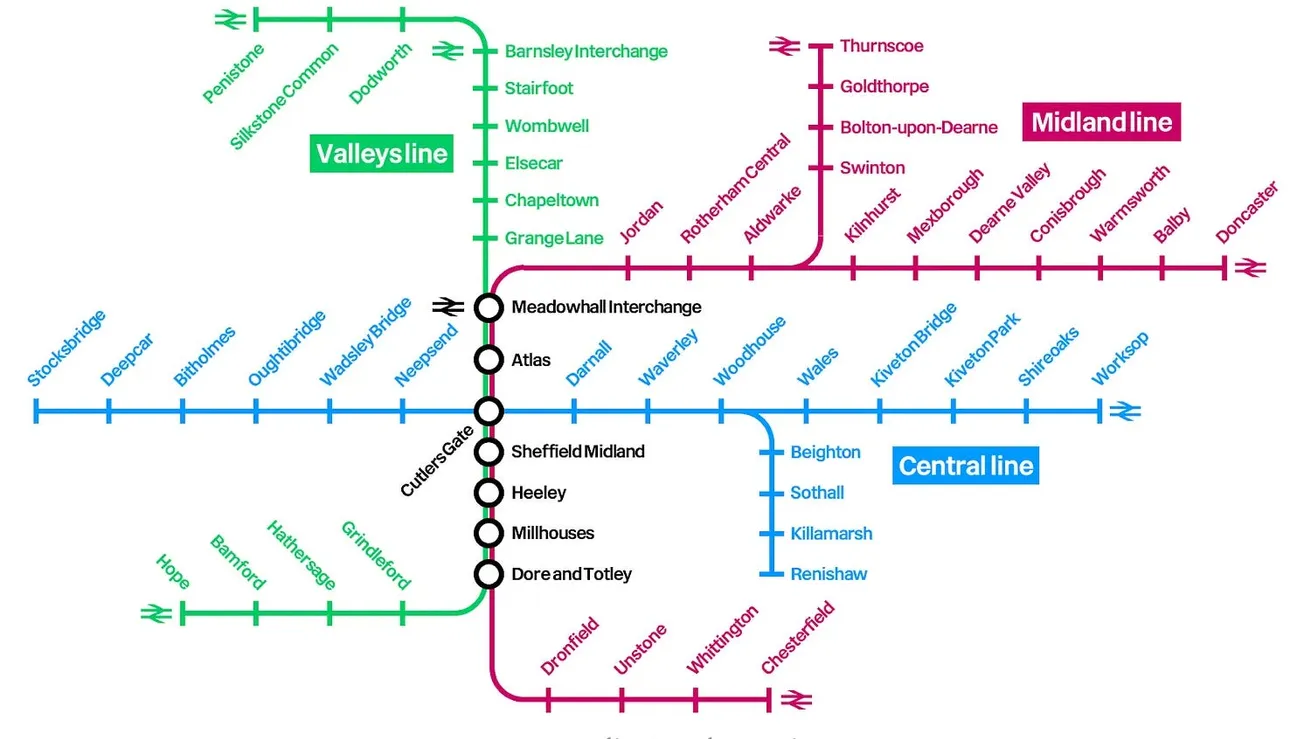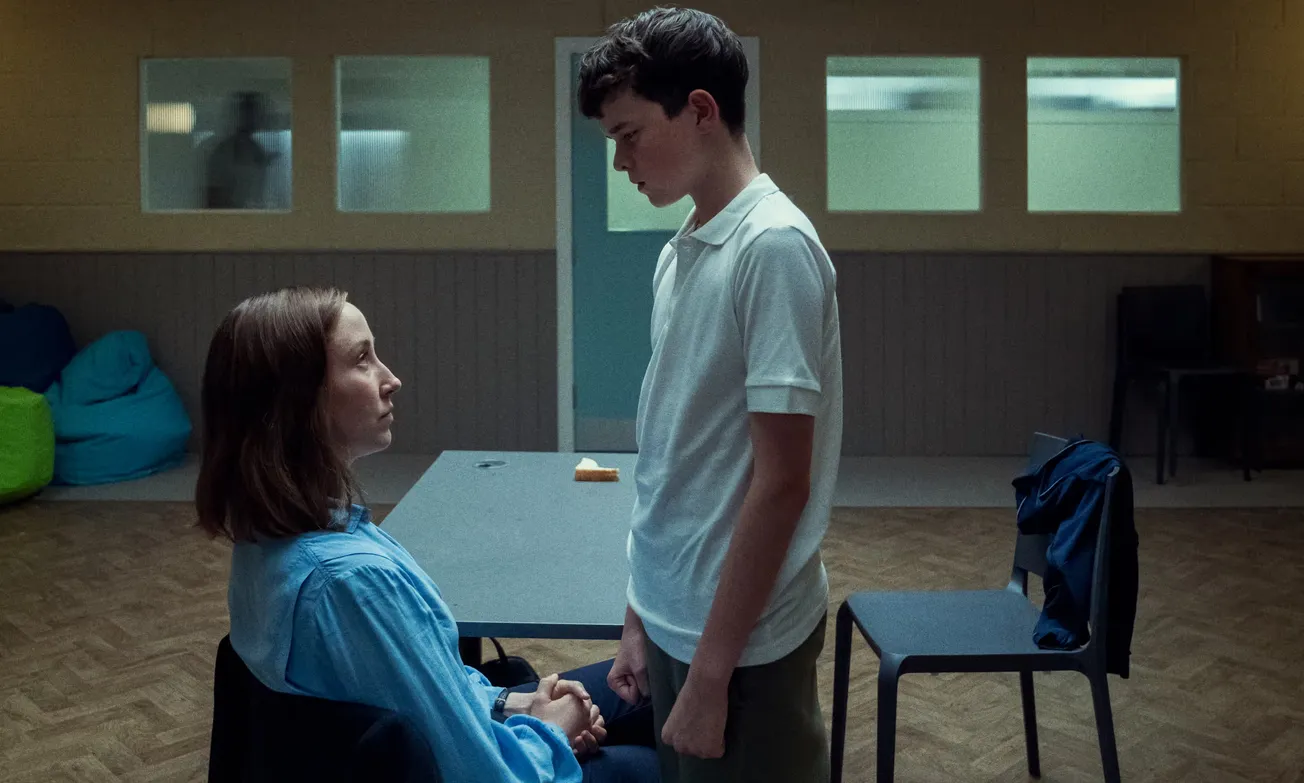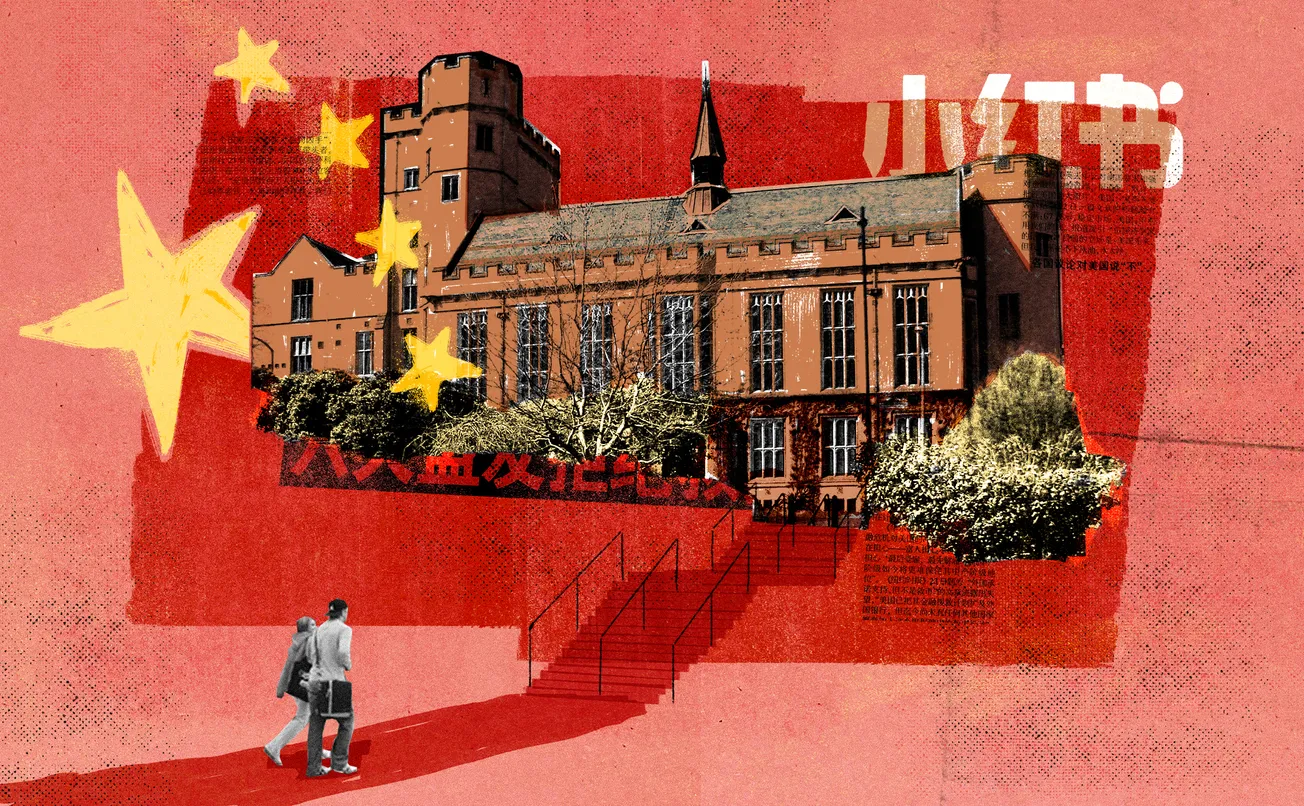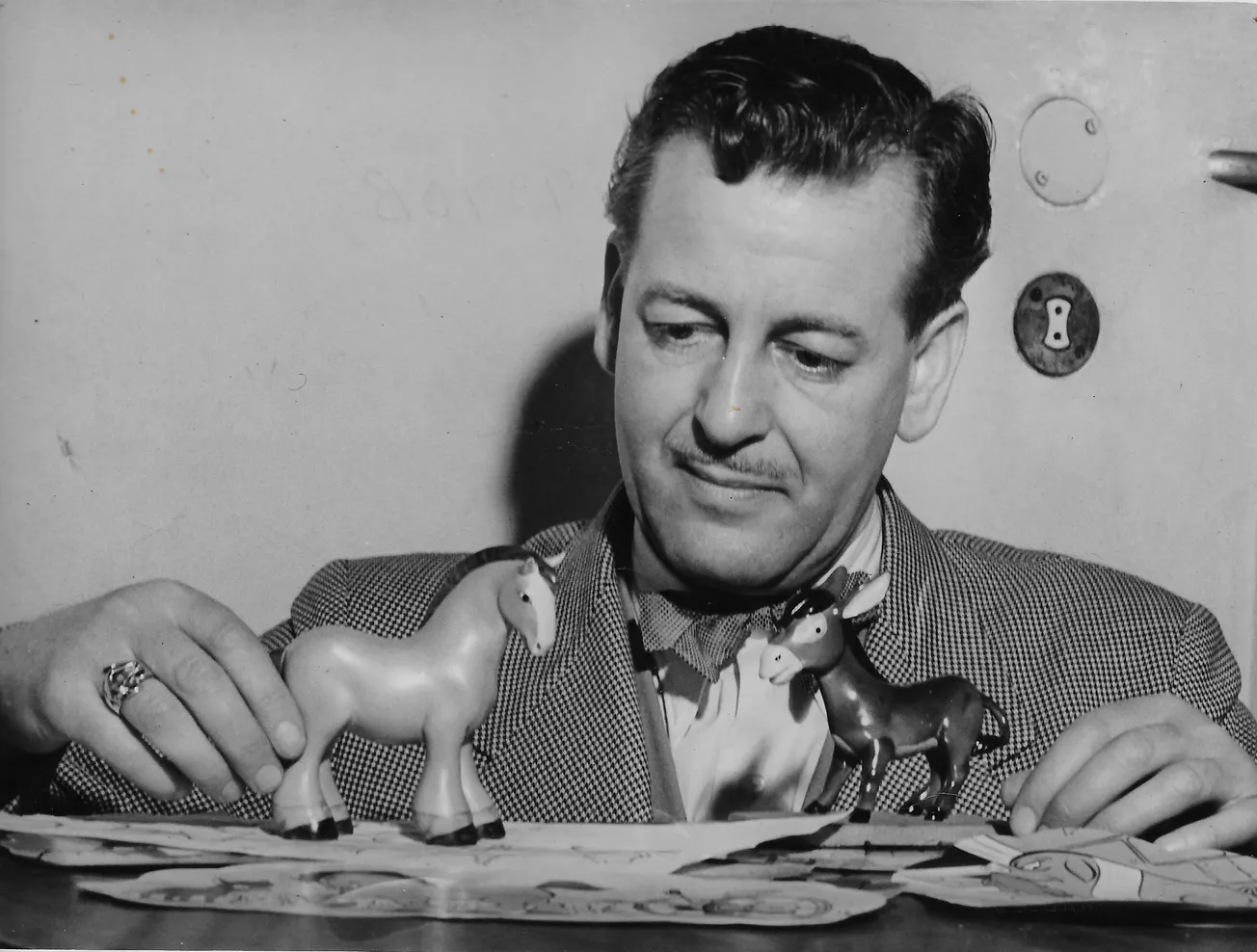Dear readers — the new Labour cabinet features not one, not two, but three MPs representing South Yorkshire. One of them is Louise Haigh, the Sheffield-based Secretary of State for Transport. While trams and buses are coming under the Combined Authority’s control, heavy rail (i.e. trains) are in her brief. So what could she do to make them better?
Sheffield’s rail system faces any number of problems: frequent delays, cancellations, and journeys that just shouldn’t take that long. While Haigh will presumably have plenty of experience of all of this, we’d like to give her a helping hand. What do those working within the train system think needs to be done to resolve our local transport migraines?
Today, we asked Gareth Dennis, rail engineer, expert, and host of the #RailNatter podcast to explain how he’d rework Sheffield’s rail network to solve some of our biggest problems. Starting with the existing lines, adding some stations and introducing new types of trains, he’s knocked together a plan to make our rail a lot more useful — putting it in the service of ordinary Sheffielders. The total bill — £3.2bn — is just a fraction of what London spent on Crossrail.
Editor’s note: We think meticulous, well researched journalism is worth paying for — if you agree, you can click below to join the intrepid group of Sheffielders funding scrutiny of developers who don’t fulfil their promises; subpar transport; and businesses in danger of crashing down.
Your Tribune briefing
🗑️ Refuse workers in Sheffield have announced they will walk out strike for a week from Monday 29 July in a row over union recognition. The union Unite said staff were “furious” at employer Veolia for refusing to recognise the union for collective bargaining. The company only recognises the GMB union, despite Unite members making up around 80% of the workforce. Unite says they have “no problem” with GMB being recognised as long as it is too.
🚗 Sheffield Council say the Clean Air Zone introduced last year to cut air pollution in the city centre has reduced nitrogen dioxide levels across the city by 21%. This piece in Now Then also reveals that the proportion of cleaner taxis entering the city centre has jumped from 64% to 95%, and that there has been a 27% drop in nitrogen dioxide levels at Arundel Gate. However, director of public health Greg Fell said there was still “more to be done”.
🎭 The new artistic director of Sheffield Theatres has been named as Elizabeth Newman from Pitlochry Festival Theatre. The admired director spent six years at the Scottish theatre and previously worked as the artistic director at Bolton’s highly-respected Octagon Theatre. Newman said getting the role was a “dream come true” while Sheffield Theatres’ chief executive Tom Bird said she had “a superb reputation for making big-hearted theatre work.”
Things to do
🚨 How is the leader of the Sheffield Uprising commemorated in the city today? Who was Charlie Peace, and why was he England's most wanted man? Why was Sheffield known as “Little Chicago” in the 1920s? And why did a rhino whip cause a chief constable to resign in 1963? The answers to all these questions will be provided by the free Law and Disorder, Murder and Mayhem Tour of Sheffield, taking place this Friday, Saturday and Sunday.
💼 Opening on Saturday at five venues across the city centre is the Dig Where You Stand Biennial. Set up by writer and educator Désirée Reynolds in 2021, Dig Where You Stand uncovers the untold stories of people of colour held in the city's archives. The biennial features new work by 14 artists, created in response to the documents, pictures, fragments and silences they found in the stacks. The free exhibition runs until Sunday, 18 August.
🎙️ There are several, very different, options for music fans in the city this weekend. On Friday, Delicious Clam will host DIY punk band Dearthworms’ album launch party (doors 7.30pm, £12). Then on Saturday and Sunday, Bassfest brings some of the biggest names in bassline music to Don Valley Bowl (all day, £45-£85). And finally, also on Saturday and Sunday, Jazz Hot Six and Acoustic Angels play Leopold Square (2-4.30pm both days, free).
Time for a rail revolution
Vision. It’s what almost all plans for railways outside of the M25 lack — an ambitious view of what the future could look like. In Sheffield, the system has evolved piecemeal, without a coherent long-term plan.
But something has changed. A new government has landed, and with it a new transport secretary. Louise Haigh is from Sheffield and represents Sheffield Heeley constituency — she might be the first transport secretary to know first-hand just how bad services can be here. To make them better, we need a vision: of a Sheffield and South Yorkshire with regular, useful rail services covering the whole city. What would that look like?
Since 1990, London has seen around £50 billion of infrastructure spending on railway projects alone. If we take that figure and divide it by London’s population, that means around £5,000 has been spent on railway projects per person since 1990, in today’s money.

Just think what public transport outside of the capital could look like if the same had been spent outside of London — say, in Sheffield. Or rather, in today’s South Yorkshire City Region (which includes Doncaster, Rotherham and Barnsley) with its total population of 1.8 million people.
1.8 million multiplied by £5,000 gives a total of £9 billion to spend on the region over the next thirty odd years. There’s a sound in the distance — it’s our Treasury overlords interjecting all the way from Westminster: “But what about the tram?”
Sheffield Supertram originally cost £240 million and was opened in stages between 1994 and 1995. The extension to Rotherham Central using tram-train technology cost £75 million. In today’s money, that totals £675 million. For comparison with the £5,000 figure, that only gives a spend of £375 per person. Are folk from the Steel City really only worth 8% of Londoners?
Deducting this cash from the total for the South Yorkshire city region still leaves us with a cool £8.3 billion to spend on railways in the region. Money’s all very well, but what we need is a clear plan — which fortunately, I’ve devised. So what do we need to do to fix public transport here?

Comments
How to comment:
If you are already a member,
click here to sign in
and leave a comment.
If you aren't a member,
sign up here
to be able to leave a comment.
To add your photo, click here to create a profile on Gravatar.







